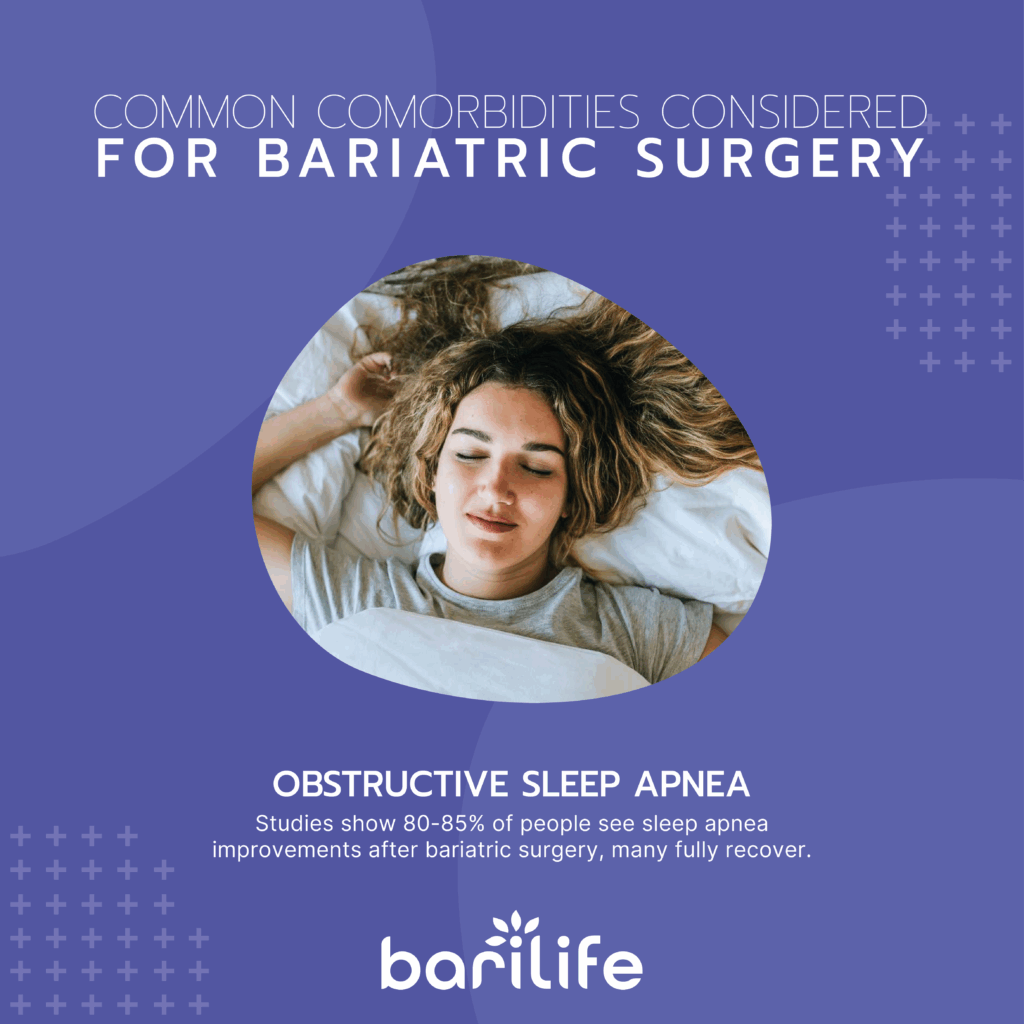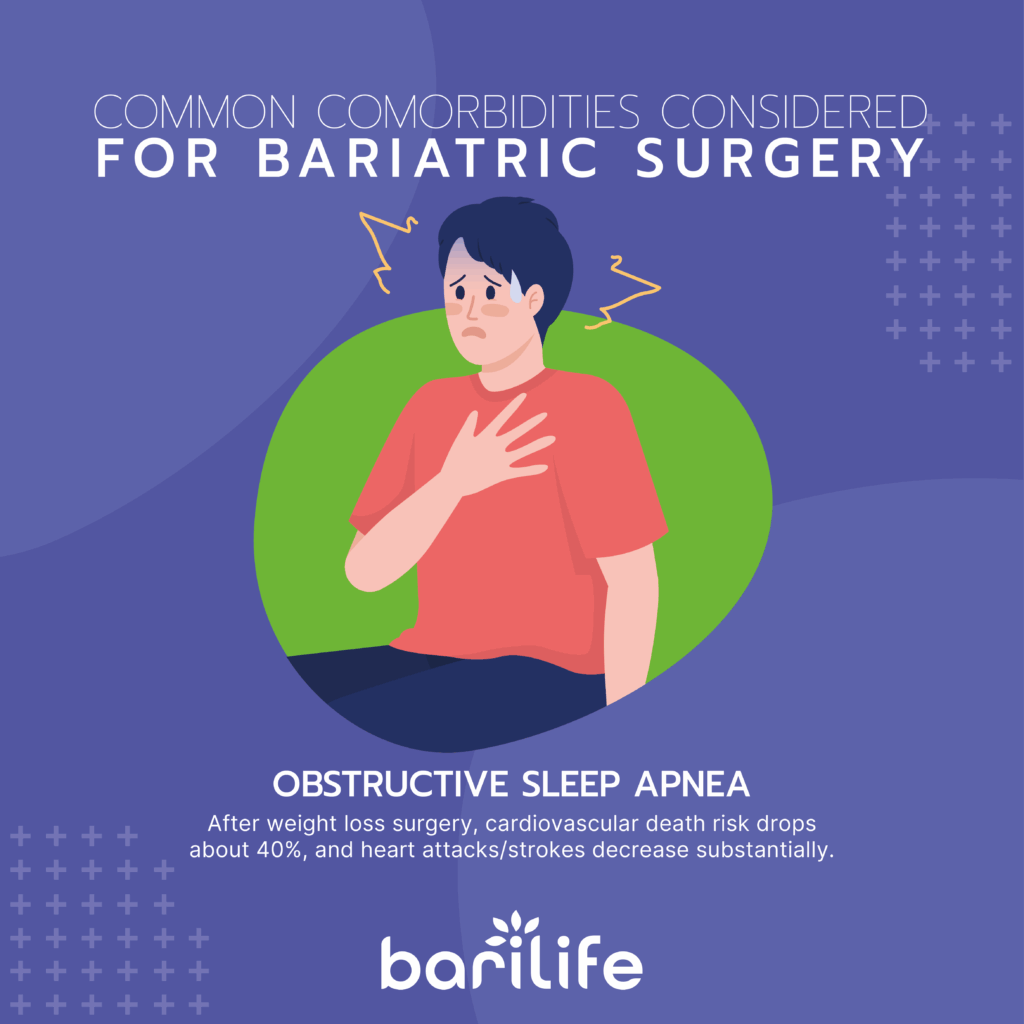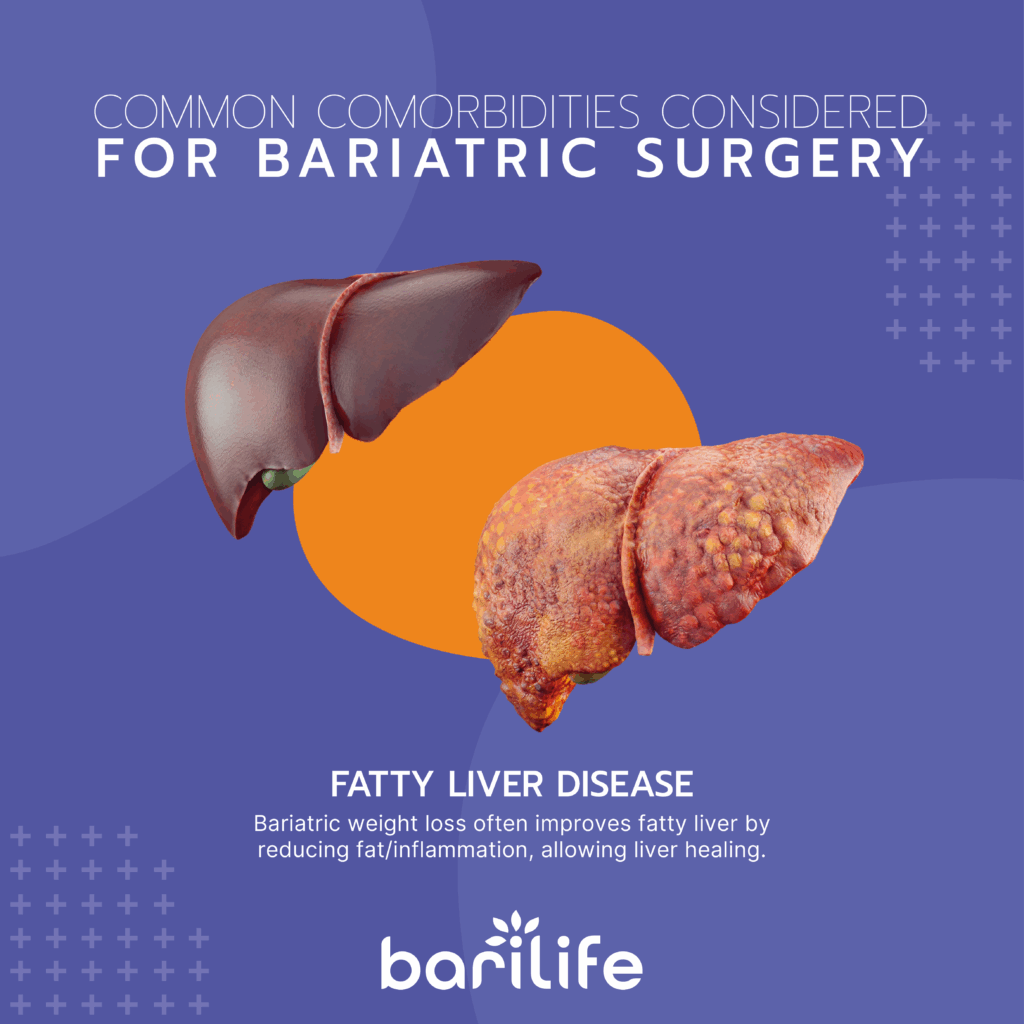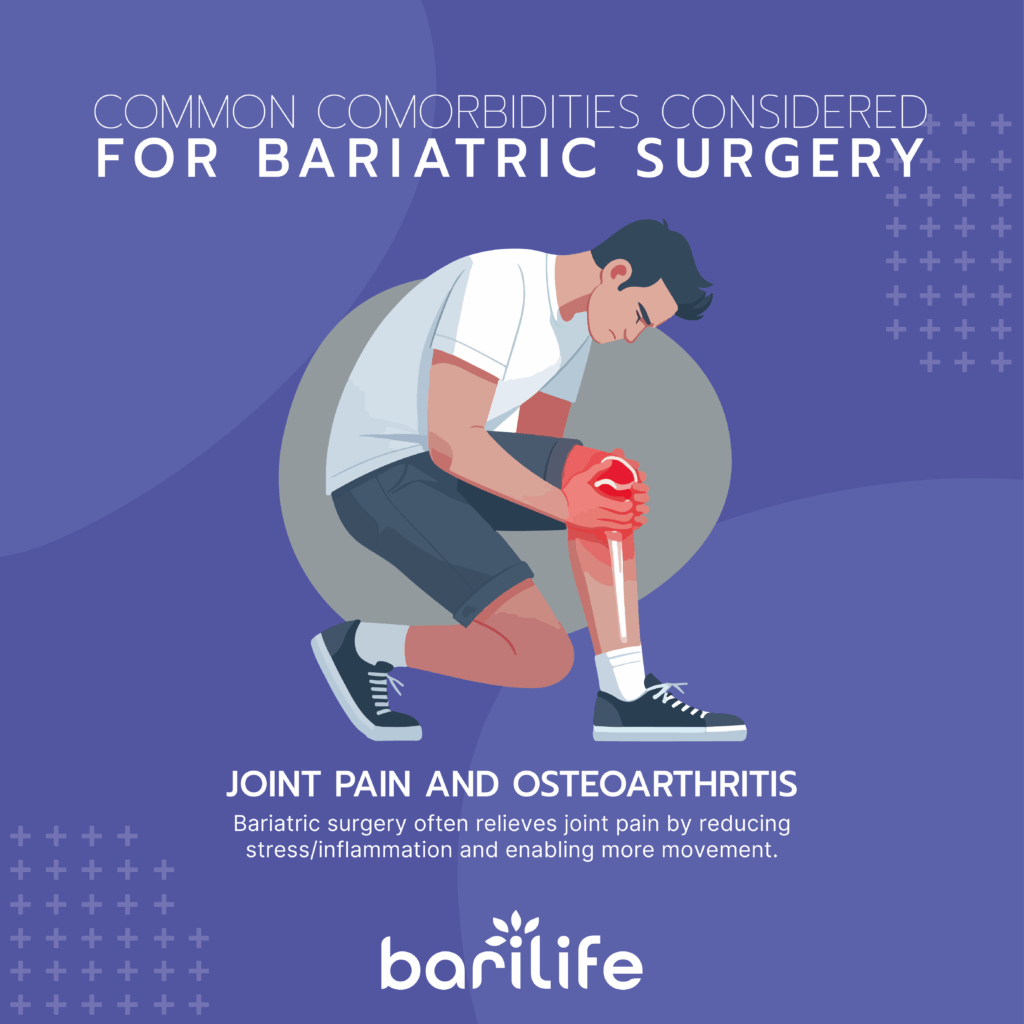Key Takeaways:
- Bariatric surgery isn't just about weight loss—it can improve or even resolve many health conditions that are linked with obesity.
- Having certain health problems makes you a better candidate for bariatric surgery.
- After surgery, many people experience dramatic improvements in high blood pressure, diabetes, and sleep apnea, often reducing the need for medications.
Are you considering weight loss surgery? If so, you might have heard doctors talking about "comorbidities" and wondered what they mean. Don't worry—we're going to break down everything you need to know about health conditions related to bariatric surgery in simple, easy-to-understand terms.
[/box]
What is Bariatric Surgery and Comorbidities?

Bariatric surgery includes several different procedures designed to help you lose weight by altering how your digestive system works. These surgeries either restrict how much food your stomach can hold, affect how your body absorbs nutrients, or both. Common types include gastric bypass, sleeve gastrectomy, and adjustable gastric banding.
But what exactly are comorbidities that doctors refer to? This term simply pertains to health conditions that occur alongside another condition, in this case, obesity. When doctors talk about comorbidities for bariatric surgery, they're referring to health problems that are connected to carrying excess weight.
The relationship between obesity and these health conditions isn't just coincidental—there's usually a direct cause-and-effect relationship. The excess fat tissue actively changes your body's chemistry, metabolism, and physical function.
These obesity-related health conditions aren't just side notes in your medical chart—they play a crucial role in determining whether bariatric surgery might be right for you. In fact, having certain comorbidities can make you a better candidate for weight loss surgery, even if your body mass index (BMI) is lower than typically required.
Common Comorbidities Considered for Bariatric Surgery
Let's talk about some health conditions that often accompany obesity:
Type 2 Diabetes
Type 2 diabetes is one of the most important comorbidities of bariatric surgery. If you're living with obesity, you're at higher risk for the onset of type 2 diabetes, where your body either doesn't produce enough insulin or can't use it effectively. This leads to high blood glucose levels, impacting your organs over time.
The connection between the two involves several factors. Extra fat tissue, especially around the abdomen, makes your cells more resistant to insulin, the hormone that lets your cells use sugar for energy. Your pancreas tries to make up for it by creating more insulin, but eventually, it can't keep up, resulting in high blood glucose levels. This is why weight gain often precedes diabetes diagnosis, and why significant weight loss can dramatically improve the condition.

Over time, elevated glucose levels damage blood vessels throughout your body, potentially leading to heart disease, kidney failure, vision problems, and nerve damage. These complications make diabetes a serious concern.
The link between obesity and diabetes is so strong that some doctors now call bariatric surgery "metabolic surgery" when it's used specifically to treat diabetes. What's remarkable is how quickly diabetes can improve after surgery—many people see better blood sugar levels within days, even before significant weight loss occurs.
This rapid improvement suggests that the surgery does more than just help you lose weight—it actually changes gut hormones that affect insulin production and sensitivity. After certain bariatric procedures, your body produces more GLP-1 (a hormone that triggers insulin release) and less ghrelin (a hormone that increases hunger and affects insulin resistance). These hormonal changes help explain why surgery can sometimes succeed in controlling diabetes when diet, exercise, and medication have failed.
If you're struggling to control your diabetes with medication, bariatric surgery might be worth considering. For many people, the improvement is so dramatic that they no longer need insulin or other diabetes medications after surgery. Even if complete remission doesn't occur, most people find they need fewer medications and have better blood sugar control after surgery.
Hypertension (High Blood Pressure)
Having high blood pressure strains your heart and blood vessels, raising your risk for heart attacks, strokes, and kidney problems. Like diabetes, hypertension often goes hand-in-hand with obesity.
Excess weight forces your heart to work harder to pump blood throughout your body. With obesity, you have more blood vessels to supply the additional tissue, meaning your heart must pump more blood through a larger network of vessels. Additionally, excess fat tissue produces hormones and inflammatory substances that can damage blood vessel walls, making them less flexible and much more resistant to blood flow.

Approximately 75% of people with severe obesity also have hypertension. If left untreated, high blood pressure silently damages your arteries, heart, brain, and kidneys—earning its nickname as the "silent killer."
Blood pressure is monitored using two numbers: systolic and diastolic. A normal reading is around 120/80 mm Hg, while readings above 130/80 mm Hg indicate hypertension. Many people with obesity have readings well above these thresholds, sometimes requiring multiple medications to control.
The good news is that losing weight through bariatric surgery often helps lower blood pressure, sometimes within weeks or months after surgery. As your body sheds excess fat, your heart doesn't have to work as hard, blood vessels become more flexible, and the hormonal environment improves.
Many people who have been taking multiple blood pressure medications find they can reduce their dosage or even stop taking these medications altogether following successful weight loss surgery. Studies show that between 60% and 80% of people experience significant improvement in their blood pressure after bariatric surgery, with many achieving normal readings without medication.
Obstructive Sleep Apnea (OSA)
If you've been told you snore loudly or stop breathing momentarily during sleep, you might have sleep apnea. This condition, where your breathing repeatedly stops and starts during sleep, is very common in people with obesity.
Extra tissue in the neck can press on your airway when you lie down, causing it to close partially or completely during sleep. Imagine trying to breathe through a straw—imagine that straw being repeatedly pinched closed throughout the night. That's essentially what happens with sleep apnea. These breathing interruptions can happen dozens or even hundreds of times per night, though you may not fully wake up or remember them.

The effects go far beyond just feeling tired the next day. When your breathing stops, oxygen levels in your blood drop, triggering a stress response in your body. Your heart rate increases, blood pressure spikes, and stress hormones flood your system. Over time, these repeated stresses take a toll on your cardiovascular system.
Sleep apnea is diagnosed through a sleep study, where doctors monitor your breathing, oxygen levels, heart rate, and brain activity during sleep. Severity is measured by the number of breathing interruptions per hour:
- Mild: 5-15 events per hour
- Moderate: 15-30 events per hour
- Severe: More than 30 events per hour
Many people with severe obesity have sleep apnea scores well into the severe range, sometimes experiencing breathing interruptions every minute or two throughout the night. The standard treatment involves using a continuous positive airway pressure (CPAP) machine, which keeps your airway open by giving a steady stream of air through a mask.
Sleep apnea is considered a significant comorbidity for bariatric surgery because it can make surgery riskier. Anesthesia and pain medications can worsen breathing problems, so it's important to have sleep apnea diagnosed and treated before surgery. Many surgical teams will recommend a sleep study as part of your pre-surgery evaluation if they suspect you might have this condition.
However, weight loss surgery often leads to dramatic improvements in sleep apnea symptoms. As you lose weight, the fat deposits on your neck and throat decrease, opening up your airway. Your diaphragm and chest wall function improve as abdominal fat decreases, making it easier to breathe deeply. Many people who need CPAP machines to sleep safely find they can breathe normally after losing weight through bariatric surgery.
Studies show that sleep apnea improves in about 80-85% of people after bariatric surgery, with many experiencing complete resolution. Even if you still need CPAP after losing weight, you'll likely need lower pressure settings, making the treatment more comfortable and easier to tolerate.

Other Important Comorbidities
Besides the "big three" mentioned above, there are several other health conditions closely linked to obesity that doctors consider when evaluating bariatric surgery candidacy.
Heart Disease and Stroke Risk
Obesity affects your heart in multiple ways. Extra weight forces your heart to work harder, potentially leading to enlargement and weakening of the heart muscle (cardiomyopathy). Additionally, obesity often raises your "bad" LDL cholesterol and triglycerides while lowering your "good" HDL cholesterol—a recipe for atherosclerosis, where arteries become narrowed with fatty deposits.
These changes increase your risk for coronary artery disease, heart attacks, heart failure, and stroke.
Bariatric surgery significantly reduces these risks. Research shows that after weight loss surgery, the risk of cardiovascular death decreases by about 40%, and the risk of heart attacks and strokes drops substantially.
Fatty Liver Disease
Non-alcoholic fatty liver disease (NAFLD) impacts up to 90% of people with severe obesity. This condition occurs when fat deposits build up in your liver cells, causing inflammation and potentially leading to scarring (fibrosis) and cirrhosis if left untreated.
In its early stages, fatty liver usually doesn't cause any noticeable symptoms, but it can result in fatigue, abdominal pain, and yellowing of the skin as it progresses. Eventually, it can cause liver failure requiring transplantation.
Weight loss through bariatric procedures has been shown to improve or resolve fatty liver disease in most people. As fat leaves the liver cells, inflammation decreases, and the liver can begin to heal, often reversing even moderate fibrosis.
Joint Pain and Osteoarthritis
Each pound of extra weight puts about four pounds of excess pressure on your knees as you walk. For someone carrying 100 extra pounds, that's 400 pounds of additional force with each step! This mechanical stress causes wear and tear on joint cartilage, leading to osteoarthritis and chronic pain.

Weight-bearing joints—knees, hips, ankles, and lower back—suffer the most, making movement painful and difficult. This creates a vicious cycle: pain makes exercise harder, leading to less activity, which contributes to more weight gain and worsening joint problems.
Bariatric surgery provides significant relief for many people with joint pain. Losing weight reduces the mechanical stress on joints, decreases inflammation throughout the body, and often allows people to become more active, further improving joint health and mobility.
Gastroesophageal Reflux Disease (GERD)
GERD happens when stomach acid consistently flows back into your esophagus, causing heartburn, chest pain, difficulty swallowing, and a chronic cough. Obesity increases the risk of GERD by raising pressure in the abdomen, which pushes the contents in the stomach upward through the lower esophageal sphincter (the valve that's supposed to keep food and acid in your stomach).
If it's left untreated, persistent acid reflux can lead to Barrett's esophagus, a precancerous condition, and even esophageal cancer.
Most bariatric procedures improve GERD symptoms, though results vary by procedure type. Gastric bypass usually provides excellent relief, while sleeve gastrectomy has more variable results, occasionally worsening symptoms in some people. This is one reason why the recommended surgery might differ based on your specific comorbidities.
Polycystic Ovary Syndrome (PCOS)
This hormonal disorder affects up to 10% of women of reproductive age, but is much more common in women with obesity. PCOS causes irregular or missed periods, excess male hormone levels, and small collections of fluid (follicles) in the ovaries. It's the leading cause of infertility in women and raises the risk of heart disease and diabetes.
Weight gain worsens PCOS symptoms, while weight loss improves them. After bariatric surgery, many women experience more regular menstrual cycles, improved fertility, reduced excess hair growth, and clearer skin—all signs of improved hormone balance.

Depression and Anxiety
Mental health conditions frequently accompany obesity, with complex bidirectional relationships. Depression can lead to comfort eating and reduced physical activity, contributing to weigh

Leave a Comment
Your email address will not be published.